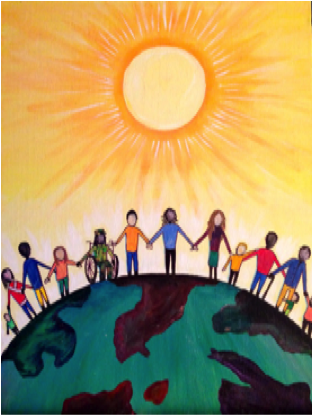Trauma Resiliency Model (TRM)® Level 1
Training Overview
The Trauma Resiliency Model (TRM)® Level 1 Training is a three-day course designed to teach clinicians how to help children, teens, and adults who are experiencing traumatic stress reactions stemming from traumatic experiences.
TRM Level 1 describes the foundational roots of the model which is based upon neuroception, neuroplasticity, co-regulation, solution-focused psychotherapy, somatic-based therapies, the regulatory capacity of the autonomic nervous system, and the growing field of interoceptive awareness.
The training is a combination of lecture, discussion and small group practice.
TRM: A Biology-First Approach
TRM Level 1 describes the neurobiology of threat and fear and how clinicians can help clients restore balance to their nervous system by implementing a biological approach to restore healing in the mind and body.
This is accomplished by helping clients expand interoceptive awareness by learning to distinguish sensations of well-being from sensations of distress.
Most importantly, this model explores the concept of resiliency and how to restore balance to the body and the mind after traumatic experiences.
When the focus is on normal biological responses to extraordinary events, there is a paradigm shift to symptoms being described as biological rather than as pathological or as mental weakness. As traumatic stress symptoms are normalized, feelings of shame and self-blame are reduced or eliminated. Symptoms are viewed as the body’s attempt to re-establish balance to the nervous system.
Skills For Client Self-Care
TRM presents nine skills using a scaffolding paradigm to help practitioners learn how to create a clinical treatment plan integrating the skills into practice.
Using a mind-body approach, TRM is both a model for trauma reprocessing as well as a model promoting client self-care.
The clinician learns the basic concepts of TRM and how to introduce the concepts and the skills to clients.
TRM’s Definition of Trauma
TRM helps develop the clinician’s understanding of the myriad of ways that trauma is defined including diagnostic criteria, historical, intergenerational and cumulative traumas.
The concept of “intersectionality” is highlighted to bring the clinician’s awareness to the variety of ways that clients identify in their lived experiences and additional factors that contribute to honoring cultural humility in practice.
Learn More & Register
Our TRM trainings are affordable, include 18 CEUs, and provide ongoing support and community.
Register for a training today or email us for more information.
TRM Level 1 Learning Objectives
By the end of this training, participants will be able to:
▪️Describe three or more key concepts of the Trauma Resiliency Model (TRM)®
▪️Describe three or more ways traumatic experiences affect the mind and body based on current scientific research.
▪️Describe the parasympathetic and sympathetic arms of the autonomic nervous system including the impact on traumatic stress symptoms.
▪️Describe TRM’s definition of trauma.
▪️Describe and utilize the nine skills of TRM.
▪️Describe the six skills of the Community Resiliency Model (CRM)®.
▪️Identify two or more ethical considerations with regard to implementing TRM.
Testimonials
“I’ve been so appreciating the ability to use the tools you gave us in my sessions since the training. I’m realizing how simple and effectively organized your model is — and has streamlined, and operationalized what used to be a fleeting or sporadic process.
Your model is truly like a portable therapy kit that I can supply each person and myself in sessions. I have to say even the model of how you trained us over the weekend — really successfully created lasting neural pathways — as I am able to recall and use the tools almost intuitively — just from the weekend! So THANK YOU! THANK YOU! to you and your beautiful team!
I’ve already used TRM in my sessions with people from Syria, Sudan, Bangladesh, Armenia, Russia, El Salvador and more! And have had opportunities to practice briefly teaching the model to my staff and colleagues over the weeks! The fun of learning and solidifying this skill is only just beginning!”
— Carol Gomez, Clinical Director
Program for Torture Victims, Los Angeles






